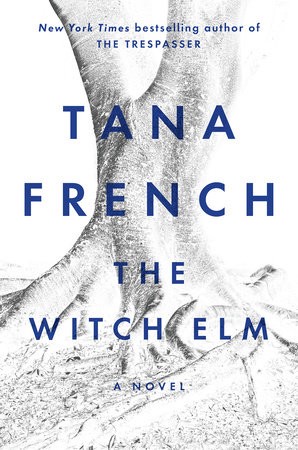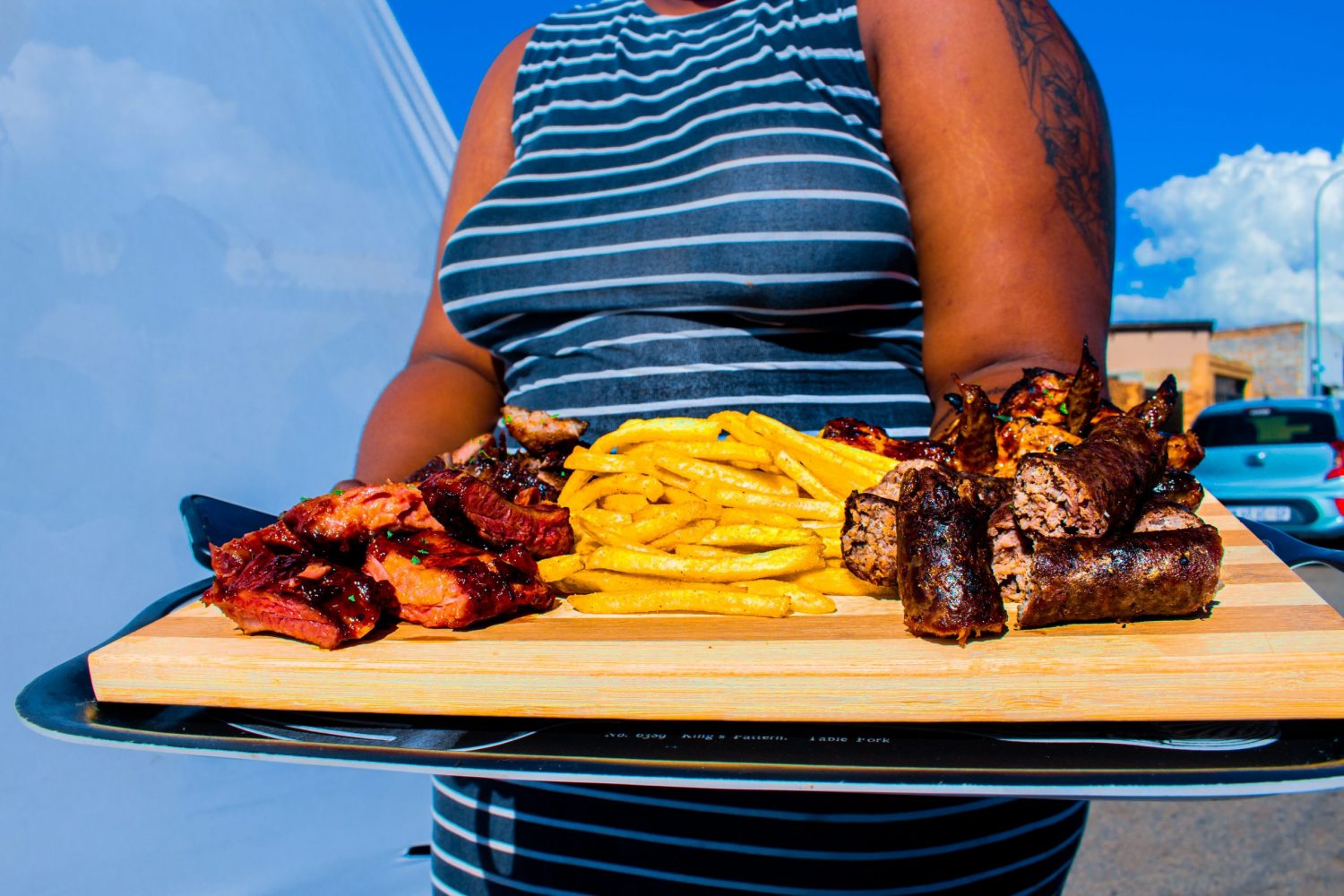interviews
Tana French’s “The Witch Elm” Is an Exploration of White Male Privilege
The author on the apathy of straight white men who have too much luck in life

The protagonist of The Witch Elm, Toby Hennessy, has been lucky his whole life. A young good-looking white man, he’s got money, a loving family, a girlfriend he worships, every kind of social privilege a person can have. Until he surprises two burglars in his apartment, that is. They beat him nearly to death, and he wakes up a different person — not lucky, as he sees it, at all.

Toby goes to recuperate at the Ivy House, the family home where he spent summers with his uncle Hugo and cousins Leon and Susanna. He expects the Ivy House to be idyllic, but in this way, too, his luck has run out. He’s in the middle of a murder investigation, and he’s far from ready to cope.
Tana French’s first stand-alone novel (her others have been part of a series about Dublin murder detectives), The Witch Elm combines questions of luck, privilege, guilt, and responsibility with a murder investigation, a big heap of family drama, and crystal-clear Irish prose. It’s as gripping as it is thought-provoking, as intelligent a novel as I’ve read in years.
I spoke to French via Skype about people who are too lucky for their own good, how we can all learn to see our own privilege, and what happens when you find a skull in a tree.
Lily Meyer: What was the first spark of The Witch Elm? Did it begin as a novel about privilege or luck?
Tana French: Mainly, I was thinking about the connection between luck and empathy. If we’ve been too lucky in one area of life, that can stunt our ability to empathize with people who haven’t been that lucky. For example, I was lucky in that I had a pretty happy, loved childhood, and that meant that growing up, when I was a teenager, if somebody told me about having a terrible childhood, there was a part of me that was going, “Surely it can’t have been quite that bad! They’ve got to be exaggerating a bit.” It wasn’t that I didn’t believe the person, but it was so far outside my frame of reference that I couldn’t quite take it on as a reality. Of course, I grew up and copped onto myself, and realized that I needed to shut up and listen.
That kind of inability to empathize with something outside our frame of reference spreads across a whole lot of categories. I started thinking: What about somebody who’s been lucky in every possible way there is? Here’s a guy who’s white, male, straight, cisgender, from an affluent family, from a loving, stable family, physically and mentally healthy — what would that do with his ability to empathize with people who haven’t been that lucky, and to accept that they’re living in a completely different reality from his, and their experience is still real.
If we’ve been too lucky in one area of life, that can stunt our ability to empathize with people who haven’t been that lucky.
LM: In a lot of ways, The Witch Elm is about ableism. The book starts with Toby getting beaten up in a way that has serious consequences — brain damage, PTSD. How did that inform your writing?
TF: When Toby’s physical and mental health are taken away from him, this is something he absolutely can’t process. He considers his physical and mental problems to be alien things imposed on him, and he refuses to find a way to operate within these new parameters. I wanted to examine what happens when your luck in a certain area is suddenly ripped away from you. When you find yourself, overnight, on the other side of the coin, how do you reconstruct your view of yourself? How do you reconstruct your view of the world?
LM: My empathy for Toby changed constantly over the course of the novel. Sometimes I felt for him, and sometimes I was furious at him. How did your own feelings toward Toby change?
TF: My attitude to Toby is that I hope you occasionally want to give him a good kick, but I hope you never hate him. I never wanted him to be a jerk. I didn’t want him to abuse his luck to deliberately make other people’s lives difficult, or to take advantage of his power. I wanted him to be one of these people who are just bopping happily along, completely oblivious. He’s a nice guy! He’s generous; he’d go out of his way to do someone a favor.
The problem with Toby is that he does not — and will not — consider the fact that other people are living in a world that’s different from his own. But he’s not an asshole. There will always be assholes, and there’s no point having a conversation with them. That’s not where change can take place. I’m more interested in the oblivious person bopping through life, since we’ve all been oblivious to other people’s experiences at times. It’s when figure out that we’re oblivious that the questions emerge: what is our duty to others? How aware are we supposed to be?
LM: Toby particularly struggles to empathize when his cousin Susanna brings up the fact that women in Ireland have no right to abortion while pregnant. (The 1983 Eighth Amendment in Ireland’s Constitution gave pregnant women and fetuses equal right to life, criminalizing abortion under essentially all circumstances; the exact conditions in which abortions can legally be performed have historically remained opaque.) Since you finished The Witch Elm, Ireland has voted overwhelmingly to overturn the Eighth Amendment, which will enable pregnant women to have autonomy over their bodies. What was it like to see that vote happen?
My attitude to Toby is that I hope you occasionally want to give him a good kick, but I hope you never hate him.
TF: It was pretty amazing. You know, the vote on the Eighth Amendment was presented as an abortion vote, but it was much more than that. The amendment affected every pregnant woman. It was quite a frightening thing to be pregnant in Ireland and know you were, legally, not a person. So it was quite amazing to realize that Ireland had become a different place for women. I’d been involved with the campaign a lot, and this was a pretty big payoff.
LM: How did it feel to write Toby compared to the Dublin Murder Squad detectives?
TF: I really enjoyed this. I had a lot of fun writing this book. I’d looked at the process of a homicide investigation six times from a detective’s point of view, and I kept thinking about the other perspectives involved. For detectives, investigations are a source of power and control. For For everybody else, the murder investigation comes barreling into your life and turns your whole world upside down. It’s got to be terrifying. I thought that deserved a voice.
LM: How did you come to write a book so skeptical of the police? Susanna, especially, doesn’t trust them in the slightest.
TF: Like a lot of people in his position, Toby has an unthinking faith in authority and the system, since the system is set up for middle-class, affluent white men. He expects it to do well, and do its job. I thought you needed a balance to that in the book, especially in order to understand how Toby’s view of the system will change once he is no longer in perfect health. After he’s attacked, he is no longer the ultimate reliable narrator. He’s pretty mentally fragile. He’s got some damage going on, and as a result, people no longer see him as intrinsically trustworthy.
LM: How did you work with the contrasts between the book’s two main female characters, Toby’s girlfriend Melissa and his cousin Susanna?
Toby has an unthinking faith in authority and the system, since the system is set up for middle-class, affluent white men.
TF: Melissa was interesting to work with because Toby sees her so unrealistically. He sees her as an angelic saint, almost a Madonna figure, who is so wonderful and self-sacrificing for staying with him. Once he has to see her in terms of herself, it turns out that she’s not self-sacrificing. She loves him, and she’s there because she wants to be. But when he does something that she considers to be unacceptably destructive, her whole perspective on him changes. She has her own boundaries and breaking points, and Toby sees that.
To a certain extent, the same dynamic is going on with Susanna. Toby sees her as his quirky little cousin who’s become Mrs. Mom and purees green beans for fun. That’s his initial perspective on her. Over the course of the book, he realizes that she’s never been that person. It’s the same process as with Melissa, but in a very different way. He has to learn to see them on their own terms.
LM: We first meet the murder victim as a skull in a tree at the Ivy House. Is this a Hamlet reference? Or Garden of Eden, like a really horrible apple?
TF: The Garden of Eden reference was totally subconscious, but it’s there — somebody pulls this thing out of a tree, and suddenly Paradise is ruined. Hamlet was an undercurrent throughout, especially the Ophelia line I used as an epigraph: “Lord, we know what we are, but not what we may be.” That line has always fascinated me. It’s terrifying. Toby’s got a speech like that in the middle of the book, about how what’s terrifying isn’t his physical and mental damage: it’s the fact that he’s different now. He could wake up tomorrow as a mathematical genius, or a Star Trek fan. Day to day, he could be anything.
LM: Toby is the only character in the novel who can’t cope with death, even though he almost dies at the beginning. Do you think his refusal to think about death is a way to hold onto his belief in luck?
TF: Absolutely. He’s holding onto his perception of himself as the one in control, too. From birth, he’s been positioned as a definer, a decision-maker. He decides what gets to happen and how, and the idea that death has shown up in his family home without his say is outrageous and devastating to him.
What happens when all your privilege ripped away overnight, how do you reconstruct your view of yourself?
LM: How did you plot The Witch Elm? How did you know there would be a skull in a tree?
TF: I was bouncing around the idea of the guy who’d been lucky all his life until suddenly, one night, he wasn’t. While I was thinking about that, my brother sent me a link to a story about four kids in 1943 who found a skull in the trunk of a wych elm, which, of course, led to the whole skeleton. It was a woman, and to this day, no one knows who she was. My brother sent me this story with a note saying, “This sounds like a Tana French book,” and he turns out to have been right.
The skull down the tree combined with the guy who’s been lucky until he isn’t, and then I started writing. After that, I had no idea. I’m in awe of those authors who have outlines, but me? I tend to have the basic premise, the narrator, and a core location. From there, I dive in, follow my nose, and hope I’ll find a book there. I had no idea who the skull was or who put it there, but I figured I could work it out.
LM: When did you know who the murderers would be, and how did you then conceal that knowledge?
TF: A lot of rewriting! Once I start figuring things like that out, I always have to go back and rewrite. The funny thing is, though, your subconscious is doing half the job while you write. Sometimes, when you figure it out — “Oh, my God, that’s who done it!” — you realize you’ve actually been planting clues already. Before you even knew what you were aiming for, you already have a lot that fits just right.
LM: What were you happiest to discover in this novel? And what felt most compelling as you wrote?
TF: Toby does something right at the end of the book that, at the beginning, he would never have believed he would do. When I realized that was clearly where the book was going — that his complete transformation, and his inability to deal with that transformation, were taking him to this event — I knew it would be massively difficult to write. It was an oh-shit moment, because if I hadn’t pulled that event off, the novel would have fallen flat on its face. But it was a really exciting moment, too. It was great, thinking, “Oh! I see! That’s where he’s headed.”








